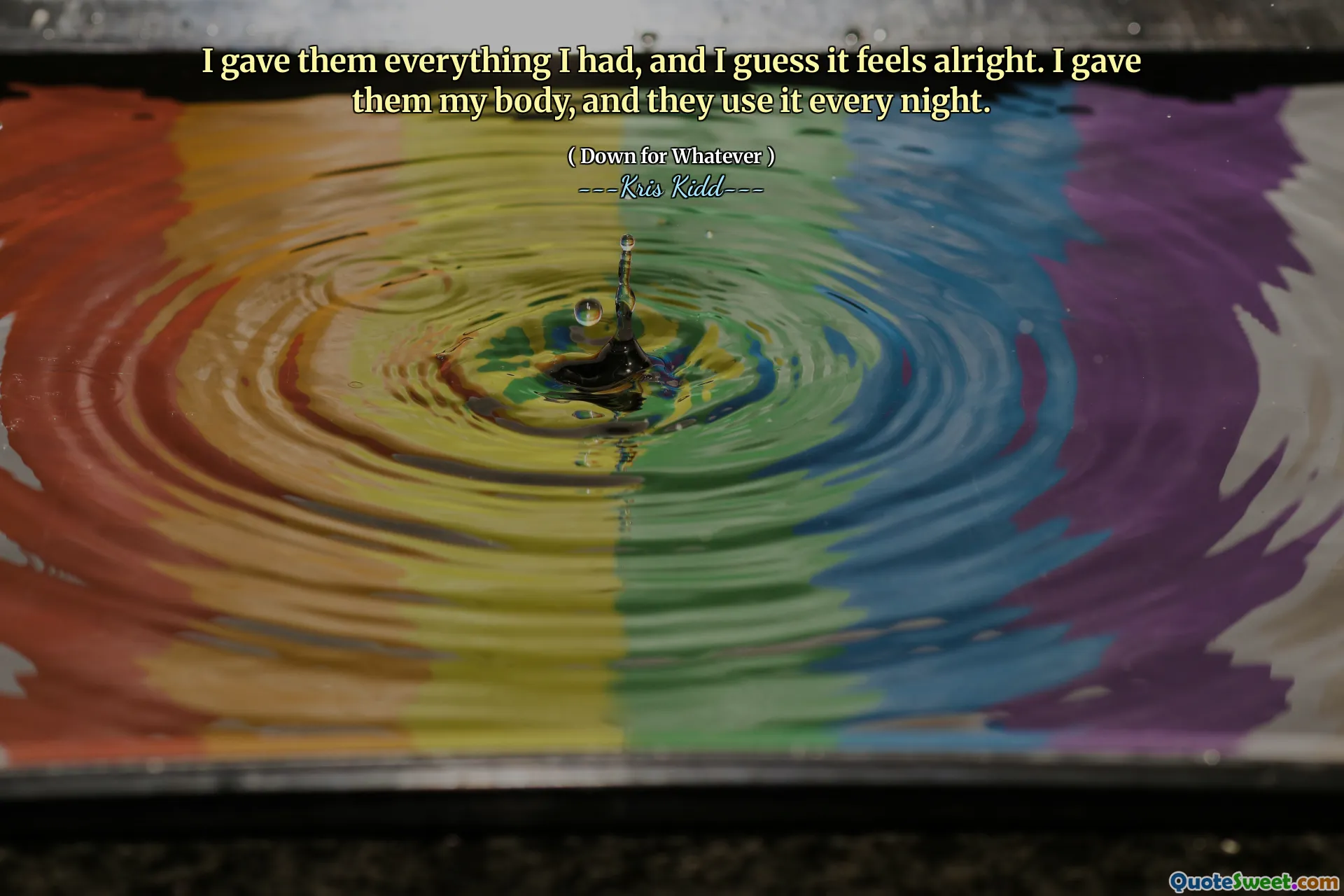
I gave them everything I had, and I guess it feels alright. I gave them my body, and they use it every night.
This quote conveys a profound emotional tension between self-sacrifice and the feeling of being used, a theme that resonates deeply in many interpersonal dynamics. The speaker seems to have poured their entire being—both materially and physically—into someone or something else, yet the concluding sentiment "I guess it feels alright" suggests a complex acceptance or resignation rather than straightforward satisfaction. It raises questions about the cost of devotion and the ambiguity of consent when boundaries between giving and being exploited become blurred.
In a broader sense, the quote explores vulnerability and trust. To give everything one has to another is a profound act of trust and affection, but the mention of "they use it every night" introduces a sense of recurring exploitation or a lack of reciprocity. This dynamic is both familiar and painful for many, highlighting the delicate balance between selflessness and self-preservation.
From a literary perspective, the quote’s raw and poetic nature captures the mix of affirmation and regret, making it deeply relatable on an emotional level. The body here symbolizes not just physical presence but also emotional availability and personal boundaries, which when unguarded, can lead to feelings of being taken for granted. Therefore, it prompts reflection on how relationships should ideally honor mutual respect and appreciation rather than mere consumption.
Ultimately, this passage invites us to reflect on how much we are willing to give before feeling diminished, encouraging a dialogue about self-value, boundaries, and the importance of acknowledging our own needs while caring for others.






